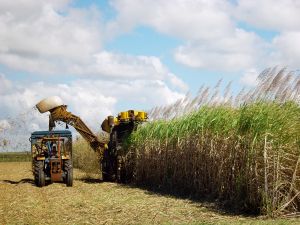Is big-business investment in global farmlands the way to build a sustainable, food-secure future? Or is the fast-accelerating interest in agriculture, particularly in developing countries, evidence of a new speculative bubble that’s destined to crash as badly as the dot-coms or sub-prime mortgages?
Done right, “new investments in agriculture could help create the preconditions for sustained, broad-based development,” notes a new report from the World Bank, “Rising Global Interest in Farmland.” However, a briefing note from the United Nations blames the growing interest in such investments for the world crisis of skyrocketing food prices in 2007 and 2008.
If the latter is true, an even worse crisis could lie ahead, judging by the recent pace of investor interest in farmland. Before 2008, global expansion of agricultural lands came to less than 4 million hectares a year, according to the World Bank report. In 2009, though, that figure shot up to 45 million hectares in large-scale deals even before the year was out. (It’s also worth noting that some of those lands are allocated not for food production, but for biofuels.)
And who’s doing all that investing? The non-profit GRAIN takes the World Bank to task for not naming names and notes that one especially interesting data set — where the top buyers of global farmland are from — never made it to publication. Those countries, GRAIN points out, are China and the UK, tied for first place, followed by Saudi Arabia.
GRAIN’s own blog, Food Crisis and the Global Land Grab, names more names than does the World Bank. It’s telling that one of the farmland investors identified on the blog is familiar for its connection to an earlier global crisis, the financial meltdown of 2008: Goldman Sachs. The names of numerous other hedge funds and banking organisations also appear, as does that of billionaire Warren Buffett’s conglomerate, Berkshire Hathaway.
Buffett, who is apparently on track to invest some $400 million in a partnership aiming to acquire agricultural lands in Brazil, clearly knows how to make money sustainably for his company’s shareholders. But he has a wildly uneven record when it comes to making it from investments that are sustainable for people and the planet: he’s big on wind energy, electric cars and sustainable carpet products, but also likes ExxonMobil and coal-fired power. (His company also remains one of the largest to not disclose environmental details to the Carbon Disclosure Project.)
The rich becoming richer from oil and coal has proven problematic enough for our planet from a sustainability point of view. Should they now also be able to grow even richer by treating the world’s food supplies no differently than gold or rare earth elements? Green MP Caroline Lucas put it right when she said, “Trading in food must not be treated as simply another form of business as usual: for many people it is a matter of life and death. We must insist on the complete removal of agriculture from the remit of the World Trade Organisation.”












